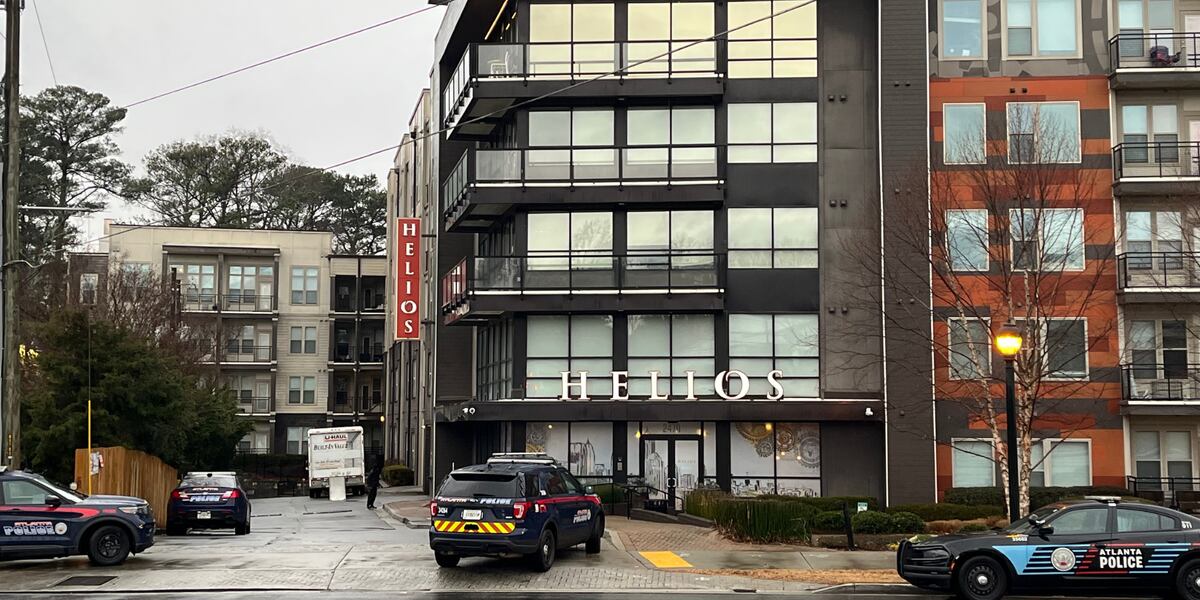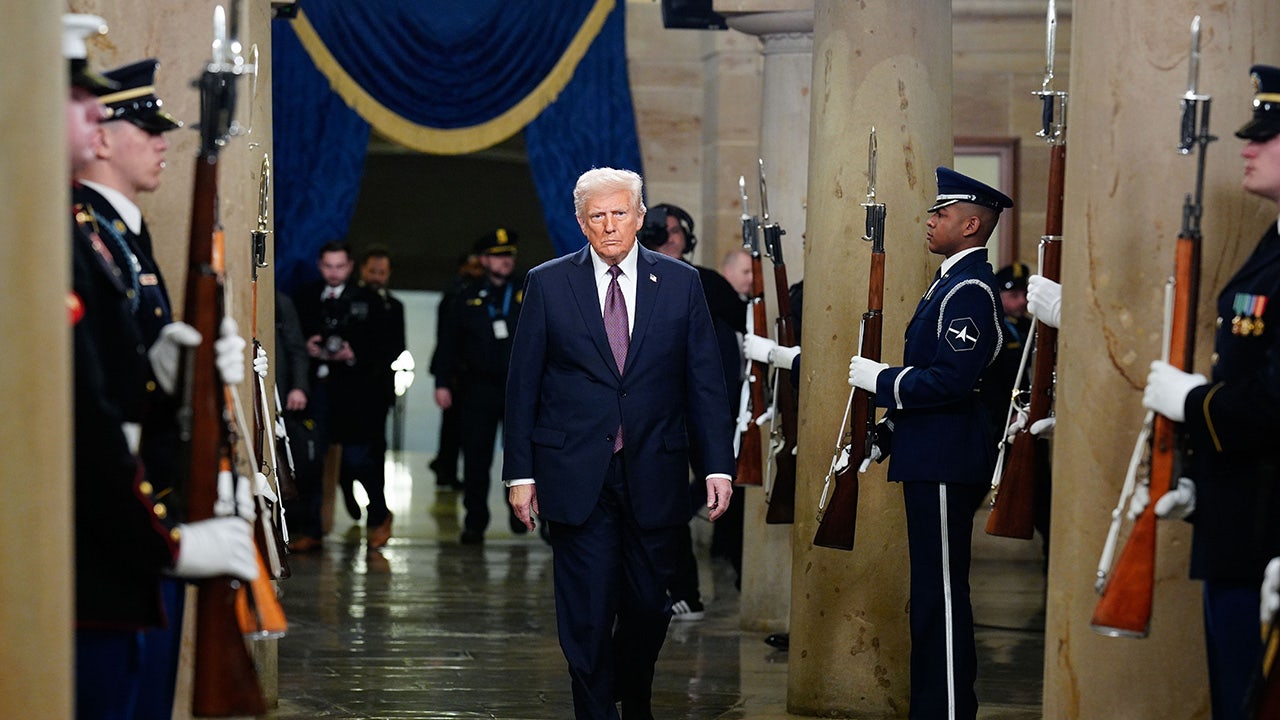New Mexico
New Mexico man gets 2 life sentences for 2009 murders

New Mexico
NM Senate Majority Leader expresses optimism about session • Source New Mexico

The opening gavel strike for the 2025 session is mere hours away and so begins the flurry of activity of a nearly $11 billion dollar budget and lawmaking.
Sen. Peter Wirth (D-Santa Fe), the Senate Majority Leader, sat down with Source New Mexico to talk about priorities in the 60-day session. He celebrated the closeness of the governor’s proposed budget, and the one proposed by lawmakers, saying there’s a lot of consensus even before the negotiations start.
“It’s a really good thing for us during the session, but also for New Mexicans, because we need to continue to put forward responsible budgets,” Wirth said.
The relationship between the fourth floor and the rest of the Roundhouse has thawed, but only recently.
In July, lawmakers adjourned a special session last year after five hours. The two houses passed emergency funds for disaster victims, but declined to take up any of the governor’s proposals for determining when someone can stand trial, harsher prison sentences and other crime legislation.
Gov. Michelle Lujan Grisham called July’s special session “one of the most disappointing days of my career,” and excoriated Democratic leadership in the days before and after for not sponsoring her proposed bills.
Wirth personally will be bringing bills addressing campaign finance reform, a plan to give the state more authority on protecting intermittent rivers from federal regulations gaps and raising caps for the state’s insurance program, a last resort for homeowners, among others.
But the first 30 days, lawmakers expect to focus on two legislative packages addressing public safety and behavioral health.
Source: What’s your assessment of how the Legislature will work with the governor’s public safety agenda?
Wirth: There have been a number of conversations between myself and the governor about the public safety process, and what we’ve done with the 30-day expedited plan.
The public safety package will be an omnibus bill centered around criminal competency and on the behavioral health side, there will be a new behavioral health trust fund, taking one-time, non-recurring money and putting it into a trust fund. It’ll spin off a 5% return. We’re hoping to get that up to $1 billion – may not happen this year, right up front. Then there’s going to be a second appropriation, probably $150 to $200 million for behavioral health infrastructure.
We are continuing to deal with the decimation of the whole behavioral health system that happened 10 years ago and critical to public safety proposals involving those suffering from mental illness and are unhoused is that there’s a place for them to get treatment.
I think the two parts of this overall package that we’ll do in the first 30 days are something certainly that the governor wants: It fits into her agenda. Obviously, there will be discussions about what is in the public safety agenda package – her priorities and our priorities – but I’m feeling more optimistic about a process that’s good to get us where we need to go.
There were hard words in the aftermath of last year’s special session from the governor, chastising lawmakers for not addressing public safety then; has the relation been better in recent months?
There’s no question that it was strained after the special session, but the governor reached out first, she and I have had a number of one-on-one meetings, and again, I think there’s an understanding that we need to move forward.
I’m really confident that the process we’ve set up here gives us the chance to thoroughly vet these bills, which are complicated. And the special session: it just wasn’t ready, there was no behavioral health piece. The frustrating thing is it wasn’t ready to go, it was forced and you can’t do a special session when everything’s not preplanned.
I also want to stress we’ve had six incredible years of productive work during Gov. Lujan Grisham’s term. I’ve been here long enough to know that’s certainly not always the case. Under the prior administration, from a Democratic perspective, we spent eight years fighting for the status quo.
Governor, Legislature feud over crime with special session just days away
There’s been this concern that the focus on crime would suck attention from other issues coming forward in the session, any response on that?
Absolutely. I had the same concern, but I think it’s really important by having this emphasis on the first 30 days. It allows us to really put forward a package, send it to the governor and then shift gears, and make sure we get all the other key issues through the process and to the table.
What you don’t want to have is 100 different crime bills floating around and us trying to round all that up right at the end of the session. I think that would have the potential to have the whole thing crater.
We’ll have a focused package up front and I want to be clear, it doesn’t mean additional crime bills won’t be heard on an individual basis. I think putting the emphasis up front addresses that concern and will allow us to obviously send it up to the governor. She gets her input on it, and adds things and figures out what needs to be on the table as we move forward.
Putting the emphasis on the midway point, I think helps address exactly those concerns.
New Mexico
City of Albuquerque prepares for cold front moving into New Mexico

As temperatures drop, city workers are trying to make sure everyone has a warm place to go or at least some warm clothes.
ALBUQUERQUE, N.M. — Temperatures are cold across New Mexico and are expected to drop even lower. For many, that means layering up and putting the heat on in your house. But for thousands of New Mexicans, they don’t have that luxury. So leaders with the City of Albuquerque are trying to help out.
Right now, the city’s cold weather sheltering plan is in place. Meaning, more beds and shelters are available to anyone who needs it. But according to the city’s shelter bed tracker, Gateway Center, Gateway West and Family Gateway are all full.
Gateway West is even over capacity, with the site saying -83 beds are available. But some Gateway services are being converted to make more beds available, like the first responder receiving area.
City leaders also explained they work with partners to make sure they can fulfill their promise of providing a warm place and bed for every person who needs it.
“Anyone that asks for a bed, either we’re asking them, or if they’re calling us, we’ll make a warm bed available,” CABQ Director of Communications Staci Drangmeister said.
As temperatures drop, city workers are trying to make sure everyone has a warm place to go or at least some warm clothes.
“First responders are out handing out coats, socks, warm clothing to people that need them. Anyone that would like to donate, we would love your support,” Drangmeister said.
Drangmeister explained some of the top priorities right now are things like coats, sweatpants, gloves, beanies and more. But as first responders hand items out, they’re also trying to encourage people to go to shelters as temperatures become life-threatening.
“It’s important for everyone to know that the cold, and when it’s wet especially, can be really dangerous. Look out for your community, both housed and unhoused,” Drangmeister said.
Under the cold weather sheltering plan, the city works to free up even more beds than it currently has.
“The Gateway Center is one of the places within our emergency sheltering plan that we can add additional capacity so we can add temporary beds as the need might expand,” she explained.
As the city’s shelters fill up, Drangmeister said they’ll tap into their network of partners to add beds.
“Gateway West is closing in on capacity, but there are partner organizations, and then the city has plans in place and is committed,” Drangmeister said.
The shelters and beds are also open to anyone who is cold, not only people facing homelessness.
“By law, your landlord has to give you adequate heating. So, if you’re a renter and that’s not the case. [We] encourage you to call 311, and report it, because everyone should absolutely have access to a heater that’s going to work and keep you warm,” she said.
According to the city’s website, 1,199 beds are in use and 85 available. But if those run out. Drangmeister says they’ll continue to find more beds or set up cots in the shelters.
If you need a place to warm up during the day or if you lose power, you can go to any of the city’s facilities like a community center. Drangmeister says they’ll open up warming centers as needed.
You can call ACS at (505) 768-4227. For transportation to a shelter between 8:00p.m. and 7:00a.m., call the ACS emergency after-hours transportation service at (505) 418-6178. You can also call 311 for help.
To donate clothes, click here.
New Mexico
New Mexicans take part in People's March with prominent figure

The march brought people together to advocate for various issues, including women’s rights, and featured outgoing Interior Secretary Deb Haaland, a New Mexico native herself.
ALBUQUERQUE, N.M. — New Mexicans took part in a national movement with a prominent figure at their side Sunday in Albuquerque.
A large crowd of people gathered for The People’s March, which brings people together to advocate for various issues, like women’s rights and immigration.
“I haven’t actually come out and stood up for what I believe in, and now’s the time to do it, I think, more than ever, honestly,” said Cat Edmonds, who marched for the first time.
There was a familiar face joining Edmonds in the march. Deb Haaland, the outgoing secretary of the U.S. Department of the Interior and a member of the Laguna Pueblo in New Mexico, made her way back home from Washington, D.C.
“I’m so happy to be here. I’ve been a part of this march for many years, and happy to be here once more,” Haaland said.
As the Interior Secretary under former President Joe Biden, Haaland became the first Native American to serve as a cabinet secretary. Her term ended Monday when Donald Trump took the oath of office and became president.
Haaland said she is proud of what she accomplished.
In 2023, her office took action to protect the Chaco region from new oil and gas leasing and mining claims. At the time, she was met with Navajo protesters who blocked the route to Chaco Canyon.
Tribal-led conservation was a big push for Haaland during her term but not the only key issue.
“I think that, generally, President Biden was just so great on conservation. So we were able to get a lot of conservation efforts across the finish line for here in New Mexico, but it’s everything else too,” she said.
Recently in New Mexico, her department agreed to a settlement with the Jemez Pueblo over land rights in the Valles Caldera National Preserve.
“I’m a New Mexican, I’m a Pueblo woman. I take that perspective wherever I go. And so being in Washington, D.C., having the opportunity to manage a 65,000 career workforce, and manage all of our public lands, it was really a wonderful opportunity and such an honor,” Haaland said.
There is no official word on what Haaland’s next move will be.
-

 Science1 week ago
Science1 week agoMetro will offer free rides in L.A. through Sunday due to fires
-
/cdn.vox-cdn.com/uploads/chorus_asset/file/23935558/acastro_STK103__01.jpg)
/cdn.vox-cdn.com/uploads/chorus_asset/file/23935558/acastro_STK103__01.jpg) Technology1 week ago
Technology1 week agoAmazon Prime will shut down its clothing try-on program
-
/cdn.vox-cdn.com/uploads/chorus_asset/file/25826211/lorealcellbioprint.jpg)
/cdn.vox-cdn.com/uploads/chorus_asset/file/25826211/lorealcellbioprint.jpg) Technology1 week ago
Technology1 week agoL’Oréal’s new skincare gadget told me I should try retinol
-
/cdn.vox-cdn.com/uploads/chorus_asset/file/25832751/2192581677.jpg)
/cdn.vox-cdn.com/uploads/chorus_asset/file/25832751/2192581677.jpg) Technology6 days ago
Technology6 days agoSuper Bowl LIX will stream for free on Tubi
-

 Business1 week ago
Business1 week agoWhy TikTok Users Are Downloading ‘Red Note,’ the Chinese App
-
/cdn.vox-cdn.com/uploads/chorus_asset/file/25835602/Switch_DonkeyKongCountryReturnsHD_scrn_19.png)
/cdn.vox-cdn.com/uploads/chorus_asset/file/25835602/Switch_DonkeyKongCountryReturnsHD_scrn_19.png) Technology4 days ago
Technology4 days agoNintendo omits original Donkey Kong Country Returns team from the remaster’s credits
-

 Culture3 days ago
Culture3 days agoAmerican men can’t win Olympic cross-country skiing medals — or can they?
-
/cdn.vox-cdn.com/uploads/chorus_asset/file/24774110/STK156_Instagram_threads_1.jpg)
/cdn.vox-cdn.com/uploads/chorus_asset/file/24774110/STK156_Instagram_threads_1.jpg) Technology1 week ago
Technology1 week agoMeta is already working on Community Notes for Threads

















